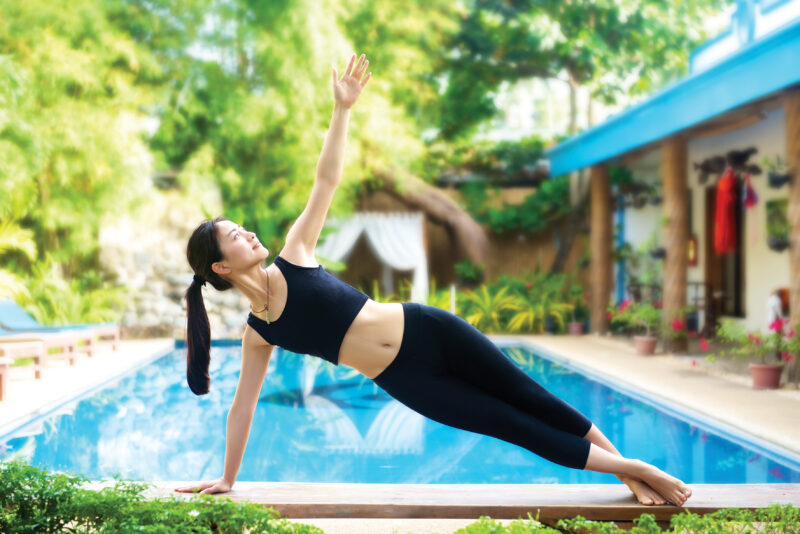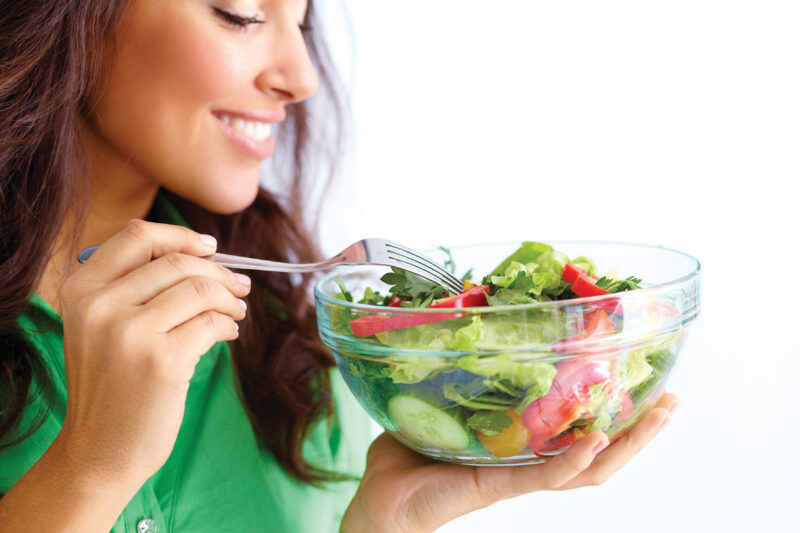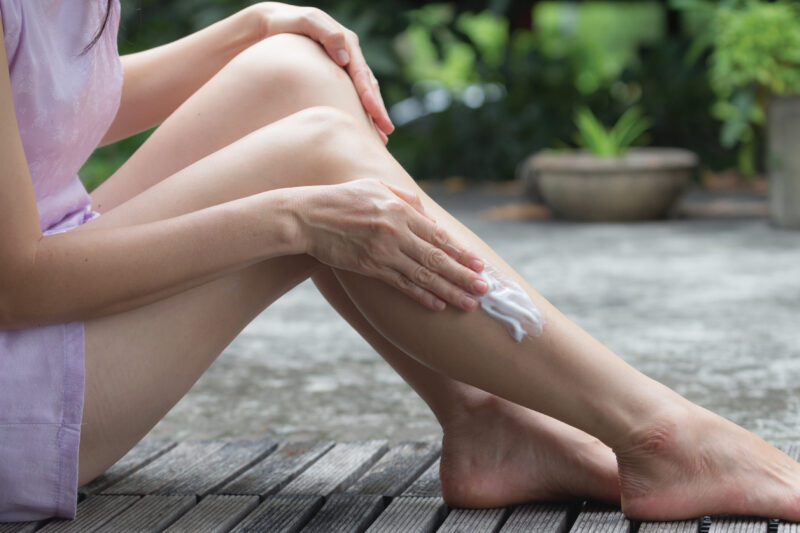The best investment to make this year is in your own health. Eating right, exercising regularly, listening to your body, conducting regular tests, staying calm and contribute to a long and active life. Dr. Parul R. Sheth lists the 10 most important wellness tips to get you fighting fit this year
he time has come to make commitments and resolutions that you can fulfil. Find ways to boost your health, fitness and well-being. Add this to your bucket list—lose weight, gain energy, be active, protect yourself from disease or injury by washing your hands with soap and water or using a hand sanitiser, use an insect repellent and sunscreen, wear a helmet while riding a two-wheeler, buckle up while driving a four-wheeler and so on. Simple things add up to huge benefits.
Cut out stress
- Get eight hours of sleep; take a nap or a midday snooze.
- Deep-breathe; it activates your vagus nerve thus soothing your brain.
- ‘Walk’ away your stress. A simple stroll around your house or at a beach or garden or on a street can give you calmness and clarity. Keeping physically active and exercising cuts down your stress levels. Include stretching exercises and relax.
- Meditate, practise yoga, pranayama, etc. to ease your anxiety and make you resilient to stress.
- Soothing soulful music helps lower blood pressure, heart rate and anxiety. Focus on the music, the soft lull of waves, birds chirping away or Hindustani instrumental music like flute, sitar, etc. Play music or sing to get rid of stress.
- Sip black tea. Naturally occurring polyphenols and flavonoids in tea create a calming effect.
- Reach out to people. Hang out with friends who make you laugh.
- Laugh a lot. Laughter zaps stress in addition to improving your circulation and immunity. A good belly laugh can lower your cortisol, the body’s stress hormone. Laugh out loud and make people laugh. Lighten up by reading comics, watching a comic movie or a video.
- Pamper yourself. Schedule a massage; massage sessions help release dopamine and serotonin, the ‘feel-good’ chemicals from the brain.
- Awaken your spiritual side. Volunteer service, do charity, attend a church mass. Do whatever soothes
your mind. - Chew gum. Studies suggest that popping a stick of chewing gum in the mouth can defuse tension, and increase blood flow and neural activity in the brain.

Burn that fat
- For downsizing your figure, downsize your dishes. Use smaller plates and bowls. Eat more frequently to curtail the portion size.
- Resist foods that pack calories. Go easy on desserts and sweets. Include healthy nutritious food, mainly salads and fruits.
- Remain physically active. Exercise for about 30 minutes every day to remain fit.
- Include strength training to gain energy, stronger bones and faster metabolism and, most importantly, to burn calories in less time. Strength training exercises can include lunges, squats, push-ups and plank, which is used in Pilates and yoga.
- Don’t forget to include aerobic or cardio exercises.
- Within 10 minutes you can burn 100 calories and boost your energy levels by climbing stairs. You can also walk, run or sprint or do reverse lunges and squats.
- Oxygen helps fuel your fat burn. Breathe in and out through both your nose and mouth. Breathe to the ‘maximum’—Inhale deeply through your nose and suck your belly button toward your spine as you exhale.
Quit smoking
This year, you could turn into a successful non-smoker. To quit smoking is the hardest and most challenging resolution.
- Set a quit date. Tell your friends and family that you plan to quit smoking.
- Be mentally prepared for nicotine withdrawal and cigarette cravings.
- Stay away from cigarettes, lighters, ashtrays and matches. Get rid of anything that smells like smoke.
- Distract yourself. Keep yourself busy at home and work. Keep your mind busy. Solve a crossword or Sudoku puzzles, play video games, listen to music.
- Keep your hands busy. Squeeze balls, pencil or paper clips can be good substitutes.
- Pop something in your mouth when the craving for cigarettes hits. Chew gum or hard candy, mint drops, carrot, celery or sunflower seeds.
- Drink plenty of water, exercise, go to a movie, have lunch or dinner at a smoke-free restaurant.
- Avoid smoking triggers—people, places, things and situations that urge you to smoke: for instance, alcohol, smokers, and the end of a meal.
- Avoid caffeine as it can make you jittery.
- Keep your mouth clean. Brush your teeth.
- Get out of temptations. Reward yourself.
- Your doctor may prescribe medication to help you with withdrawal symptoms.
- Try a nicotine patch, nicotine lozenges and nicotine gum.
Go easy on alcohol
If you choose to drink, do so in moderation. Experts suggest no more than one drink a day for women of all ages.
Beer – 355 millilitres, Wine – 148 millilitres, Distilled spirits (80-proof) – 44 millilitres
(Source: Mayo Clinic, Rochester, Minnesota, USA)

Eat smart
- Cut down your salt intake. Excess salt causes water retention or bloating and raises blood pressure. Packaged food contains the most salt; so make sure to read the labels. Avoid table salt, added salt and stay away from packaged foods. Experts suggest salt intake below 1,500 mg per day.
- Look out for hidden sugars. WHO recommends about 5-6 teaspoons of sugar for women. Control your sugar intake and refrain from sugar binging. Packaged foods, soups, syrups, fruit juices, soft drinks, all contain added sugar. Check out the labels: anything that ends with –ose means there is added sugar. Naturally occurring sugar as in fruits is not harmful to the body but added sugar is. Reduce the amount of sugar in your milk, tea or coffee. Limit your dessert or sweet intake. Add less sugar in recipes. Have a whole fruit, nuts or plain curd or yoghurt. Herbal teas, water, citrus fruits such as orange and sweet lime, are good for you. Opt for wholegrain bread and pasta, oats, brown rice. Include protein foods in your diet like eggs, lean meat, fish, chicken, lentils, sprouts.
- Eat foods containing antioxidants, which help destroy cell-damaging free radicals and prevent infection, inflammation, cancer and heart disease. Include coloured fruits and vegetables, nuts, wholegrain pasta, popcorn, eggs, beans, yoghurt, canola oil, natural sweeteners like honey, maple syrup, brown sugar, turmeric, cinnamon, cloves and oregano.
- Stop binge eating. Use your willpower; be mentally strong. Avoid skipping meals or spacing them too far apart. It is good to eat frequent meals every three hours to keep bingeing at bay. Drink water when you feel like bingeing. Exercise, keep yourself busy, spend time with friends, and distract yourself from food.
Floss your teeth
Oral health and dental hygiene are most important. Dental care can give you a pretty smile and prevent you from contracting diseases. Brushing your teeth twice a day is good but you need to floss at least once a day. Flossing helps remove bacteria from under the gum line, where your toothbrush may not be able to reach. Floss is an interdental cleaner designed specifically to clean the tight spaces between the teeth. Any anti-microbial mouthwash can kill plaque-forming bacteria but cannot remove the tartar and food that lodges between the interdental spaces.

Use sunscreen
You are exposed to the sun every time you go outside. The UV rays from the sun can harm your skin. A water-resistant broad-spectrum sunscreen with an SPF 30 or higher helps protect you from UV rays, premature ageing of the skin and skin cancer. Rub the sunscreen into your bare skin, 15 minutes before you step out or enter a swimming pool. The effect can last for about 3-4 hours. Reapply if you are out in the sun for long.
Sleep well
Partying all night, checking Apps messages, playing games through the night on your smartphone, watching videos and late night movies can mess up your sleep routine. Lack of sleep can make you groggy next day and be a driving hazard. Insomnia or sleepless nights is linked with weight gain, reduced immunity, high blood pressure, and type2 diabetes.
- Wake up at the same time every day.
- Exercise regularly, at least 30 minutes a day. Include cardio exercises such as walking, jogging and cycling to get a good night’s sleep. Do not exercise too close to your bedtime.
- Avoid drinking coffee, tea, and soda late in the evening.
- Avoid drinking fluids after dinnertime; you may have to wake up to relieve yourself and it may be difficult for you to go back to sleep.
- Eat a light meal at dinnertime. Acid reflux can interfere with your sleep.
- Create an atmosphere conducive to sleep. Unclutter your bedroom, keep it cool, dress lightly, close room drapes and shut the lights or dim them.
- Avoid late-night Internet surfing. Turn off all electronic devices such as tablets, laptops or smartphones. Switch off your television set.
- Relax, meditate, read and listen to soothing music before hitting the bed.

Conduct timely tests
Check how healthy you are. You can check your waist-to-hip ratio and if the number is above 0.8 you have unhealthy abdominal fat. Also, check your energy levels. If you are getting too tired too soon, there may be a problem lurking within like vitamin deficiency, iron deficiency or poor sleep. Your nails are a perfect indication of your health troubles. If they crack or chip easily, or look yellow and cloudy, you may have vitamin and mineral deficiencies. You do lose 50-100 strands of scalp hair every day but if your brush shows too many strands of hair as you brush, you surely have low iron or protein in your body. Keep an eye on your bowel movements; eat a high fibre diet to avoid constipation and haemorrhoids or colon cancer. The colour of your urine should normally be watery light yellow. Vitamins and medications can change the urine colour; however, dark coloured urine suggests that you are not drinking enough fluids.
- Blood pressure – Get tested every two years if you have normal blood pressure (120/80).
- Breast cancer test – Starting at age 50, get screened every two years.
- Cervical cancer – If you are 21 or older and sexually active, get a Pap test done every three years. If you are 30 or older, you need an HPV test together with Pap smear every five years.
- Get your blood cholesterol levels checked regularly.
- Get screened for blood sugar levels regularly especially if you have high blood pressure or diabetes.
- If you are above 50 years of age, get screened for colorectal cancer: go for blood testing, colonoscopy or sigmoidoscopy. Your doctor will guide you as to which test is better and how often you need to take it.
- Get tested for chlamydia and gonorrhoea every year once you are over 24 and are sexually active and at an increased risk, pregnant or not pregnant.
- Get a bone mineral test done if you are 65 and older.
Live life to the fullest
- Be positive.
- Build self-confidence.
- Be aware of your abilities and know your limitations.
- Slow down.
- Be social. Reach out to people, talk to them, spend time with your family and friends.
- Celebrate your accomplishments, reward yourself.
- Stay busy.
- Take breaks. Go for a movie, indulge in a hobby or sport, go for walks, swim, go on outings, hikes, long drives, listen to music, eat out once in a while, play games, travel and do what relaxes you and makes you feel good.


